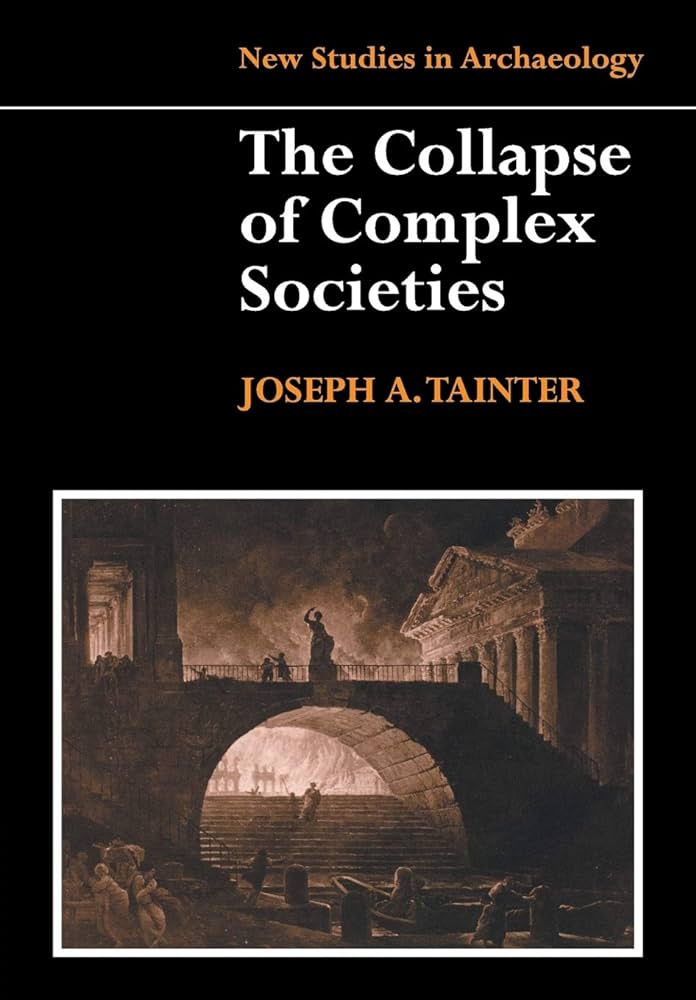After explaining the shortcomings of other accounts of societal collapses, Joseph Tainter presents his own, universal theory. Societies, he argues, are problem solving organizations that solve an unending stream of problems by increasing their complexity. Each addition of complexity, however, has an energetic costs to create and maintain it. Because societies solve their easiest problems first, complexity as a problem-solving strategy faces diminishing marginal returns by which each further addition of complexity provides less problem-solving benefit while requiring greater amounts of energy. Eventually the society becomes so rigid and overstretched that one problem or other inevitably triggers its collapse. Tainter demonstrates his theory with case studies of Roman, Mayan, and Chacoan collapses, and maintains it is just as applicable today.
The Collapse of Complex Societies

Author(s)
Joseph A. Tainter
Publication Date
1988
Publisher
Cambridge University Press
DOI / URL

Resource Type
Book
Systems Addressed
Economy • Energy • Food • Social Order and Governance
Resource Theme
Societal Collapse
